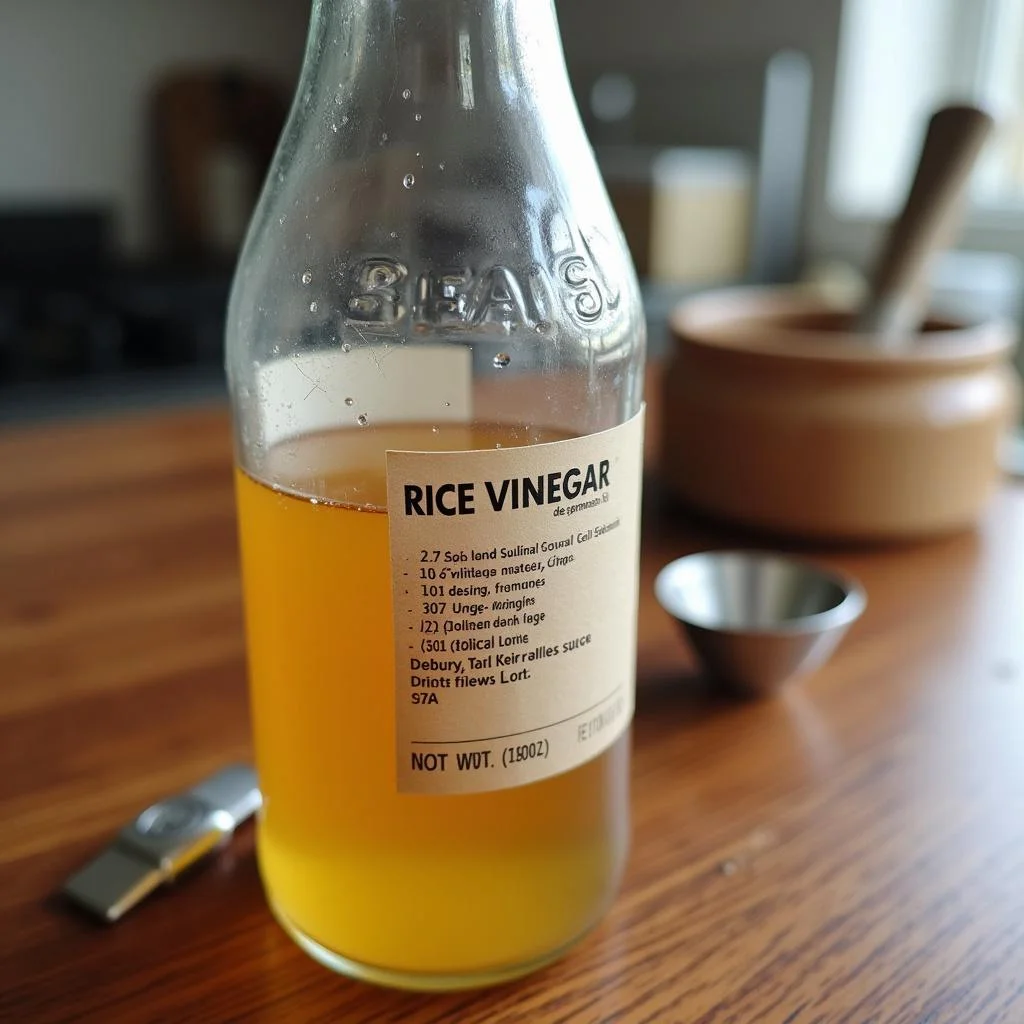1. Introduction
Rice vinegar is a staple ingredient in many Asian cuisines and is favored for its unique tangy flavor, versatility, and health benefits. Whether you’re making sushi, salad dressings, or marinades, understanding the benefits of rice vinegar can enhance your culinary experience. However, when it comes to storing rice vinegar and ensuring its vinegar freshness, many home cooks ask: does rice vinegar expire? Proper knowledge about the shelf life of rice vinegar and effective storage techniques can help preserve its quality and safety over time. In this comprehensive guide, we’ll explore everything you need to know about vinegar expiration, best practices for storing rice vinegar, and tips for optimal vinegar preservation.
2. Does Rice Vinegar Expire?
One of the most common queries regarding vinegar expiration is whether rice vinegar has an explicit expiration date or if it can be stored indefinitely. The good news is that rice vinegar, like most types of traditional vinegar, has an impressive vinegar longevity thanks to its high acidity level. Its self-preserving nature means it typically doesn’t spoil in the conventional sense, unlike perishable foods. Instead, rice vinegar may undergo gradual changes in vinegar freshness and flavor over time. You can find vinegar expiration date information that helps determine optimal usage periods. Generally, unopened bottles of rice vinegar can last for several years when stored properly, while once opened, it’s best to use it within a year for peak quality, especially if you want to maximize vinegar shelf life.
3. How Long Does Rice Vinegar Last?
The shelf life of rice vinegar depends largely on storage conditions and whether the bottle has been opened. Typically, the storage duration is as follows:
- Unopened rice vinegar: Can last up to 2-3 years beyond the vinegar expiration date when kept in a cool, dark place. Properly sealed, it maintains its quality longer.
- Opened rice vinegar: Best enjoyed within 6 to 12 months for optimal vinegar freshness. However, with proper storage, it can last longer with minimal loss of quality.
While these guidelines are helpful, it’s important to remember that vinegar expiration often signifies a decline in peak flavor rather than safety concerns. As long as there are no noticeable changes, rice vinegar can be safely used well beyond the indicated period.
4. Signs That Rice Vinegar Has Gone Bad
Although vinegar preservation is naturally excellent, it’s essential to recognize when rice vinegar may have deteriorated. Watch out for signs such as:
- Unpleasant or off-putting smell
- Change in color, appearance, or cloudiness
- Presence of sediment, mold, or bits that shouldn’t be there
- Unusual or excessively sour taste
If you encounter any of these indicators, it’s advisable to discard the vinegar. Using spoiled vinegar could lead to undesirable flavors or potential health risks, especially if contamination has occurred. Always consult resources like vinegar expiration date tools to determine safety.
5. Proper Storing Rice Vinegar & Storage Tips

Proper storage conditions are crucial to prolonging the vinegar shelf life and maintaining its quality. Consider these rice vinegar storage tips to ensure maximum freshness:
- Store in a cool, dark, and dry place, such as a pantry or cupboard, away from direct sunlight and heat sources.
- Use a tight-sealing cap or lid to prevent contamination and evaporation, especially once the bottle is opened.
- Avoid exposure to air for extended periods—air exposure can degrade vinegar freshness.
- Utilize clean utensils when pouring or dispensing to prevent bacterial contamination and preserve vinegar preservation.
6. Tips for Extending Vinegar Shelf Life
Beyond proper storage, there are additional measures to extend the vinegar longevity. Consider the following vinegar preservation techniques:
- Label bottles with the date of purchase to monitor how long they’ve been stored.
- Transfer remaining vinegar to smaller bottles as levels decrease, reducing air exposure.
- Maintain a consistent, cool temperature environment; avoid temperature fluctuations that can accelerate deterioration.
- Regularly check your vinegar for signs of spoilage, especially if stored for long periods.
7. FAQs About Rice Vinegar Expiration & Storage
Does rice vinegar expire?
While rice vinegar doesn’t have a strict expiration date like perishable foods, it can lose its optimal quality over time. Proper vinegar expiration is generally beyond 2-3 years if unopened, and within 6-12 months after opening. Always inspect for signs of spoilage before use to ensure safety and flavor.
How should I store rice vinegar to maximize shelf life?
Keep rice vinegar in an airtight container, placed in a cool, dark, and dry location. Avoid exposure to sunlight, heat, and humidity—that combination can diminish vinegar freshness.
Can I use rice vinegar past its expiration date?
Yes, in most cases, if there are no signs of spoilage such as off-odor, cloudiness, or sediment, rice vinegar can be safely used beyond the traditional vinegar expiration date. The flavor might be less vibrant, but safety isn’t compromised.
How do I tell if rice vinegar has gone bad?
Look for any abnormal smell, a change in color or cloudiness, the appearance of sediment, or mold growth. If any of these are present, it’s safest to discard the vinegar to prevent any health issues.
8. Conclusion
In conclusion, rice vinegar boasts a naturally long vinegar shelf life owing to its acidity level, which acts as a preservative. Although it can last for many years if stored correctly, proper storing rice vinegar—such as in a sealed, cool, and dark environment—helps maintain its vinegar freshness for as long as possible. Be vigilant for signs of deterioration, and utilize helpful seasonal produce guides and tasty rainy-day recipes to incorporate rice vinegar into your culinary repertoire. With these storage tips and a good understanding of vinegar expiration, you can ensure your rice vinegar remains a reliable, flavorful ingredient for all your cooking needs.

